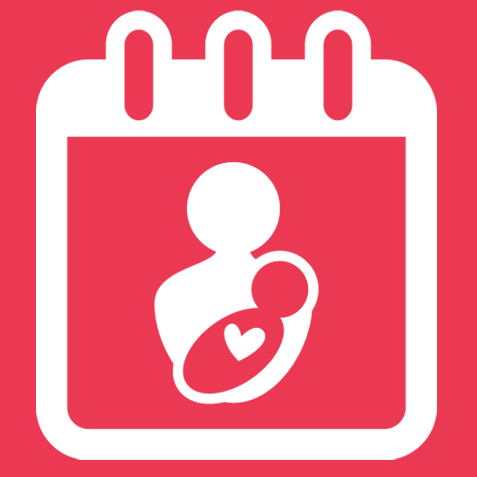Pregnancy is a time filled with joy, excitement, and anticipation, but it also comes with its fair share of uncertainty and questions. As a result, various pregnancy myths and old wives’ tales have emerged over the years, passed down from generation to generation.
While some of these myths may carry a grain of truth, many are simply based on misconceptions and superstitions. In this article, we will debunk some of the most common pregnancy myths, separating fact from fiction to help expectant mothers make informed decisions and embrace their pregnancy journey with confidence.
Don’t leave your pregnancy period to guesswork. Try Asha Pregnancy Calculator and embark on your journey to motherhood with certainty.
Contents
- 1 Common Pregnancy Myths Debunked
- 1.1 Myth 1: “You Should Eat for Two During Pregnancy”
- 1.2 Myth 2: “You Can’t Exercise During Pregnancy”
- 1.3 Myth 3: “Morning Sickness Only Happens in the Morning”
- 1.4 Myth 4: “You Should Avoid Traveling During Pregnancy”
- 1.5 Myth 5: “Pregnant Women Should Avoid All Seafood”
- 1.6 Myth 6: “Pregnant Women Shouldn’t Dye Their Hair”
- 1.7 Myth 7: “Raising Your Arms Above Your Head Will Strangle the Baby’s Umbilical Cord”
- 1.8 Myth 8: “Heartburn During Pregnancy Means the Baby Will Be Born with a Lot of Hair”
- 1.9 Myth 9: “You Can Determine the Baby’s Gender by the Shape of the Belly”
- 1.10 Myth 10: “Pregnant Women Should Avoid Cats and Litter Boxes”
- 2 Conclusion
Common Pregnancy Myths Debunked
Myth 1: “You Should Eat for Two During Pregnancy”
Fact: While it’s true that you need to nourish yourself and your growing baby, the concept of “eating for two” doesn’t mean doubling your caloric intake. During the first trimester, there is no need to increase calorie intake. In the second and third trimesters, only about 300-500 extra calories per day are recommended, depending on individual factors and activity levels.
Myth 2: “You Can’t Exercise During Pregnancy”
Fact: Exercise during pregnancy is not only safe but highly beneficial for both the mother and the baby. Engaging in regular, moderate-intensity exercises like walking, swimming, prenatal yoga, or low-impact aerobics can help improve mood, boost energy levels, and reduce pregnancy discomforts.
Myth 3: “Morning Sickness Only Happens in the Morning”
Fact: Contrary to its name, morning sickness can occur at any time of the day or night. Nausea and vomiting during pregnancy are not limited to the morning and can vary from woman to woman.
Myth 4: “You Should Avoid Traveling During Pregnancy”
Fact: In most cases, traveling during pregnancy is safe, especially during the second trimester. However, it’s essential to consult with your healthcare provider before making any travel plans, particularly for long distances or to areas with potential health risks.
Myth 5: “Pregnant Women Should Avoid All Seafood”
Fact: While some types of fish contain high levels of mercury, many seafood options are safe and beneficial during pregnancy. Fish like salmon, trout, and sardines are rich in omega-3 fatty acids, which are essential for the baby’s brain and eye development.
Myth 6: “Pregnant Women Shouldn’t Dye Their Hair”
Fact: Limited evidence suggests that hair dyes are unlikely to cause harm when used properly during pregnancy. However, it’s best to minimize exposure to chemicals and consider using natural or ammonia-free hair dyes.
Myth 7: “Raising Your Arms Above Your Head Will Strangle the Baby’s Umbilical Cord”
Fact: Raising your arms above your head will not cause harm to the baby or the umbilical cord. The umbilical cord is long enough to accommodate different positions and movements.
Myth 8: “Heartburn During Pregnancy Means the Baby Will Be Born with a Lot of Hair”
Fact: There is no scientific evidence supporting a connection between heartburn during pregnancy and the amount of hair the baby will have at birth. Heartburn is a common pregnancy symptom caused by hormonal changes and increased pressure on the digestive system.
Myth 9: “You Can Determine the Baby’s Gender by the Shape of the Belly”
Fact: The shape and size of the belly are influenced by factors like the mother’s body shape, the position of the baby, and the amount of amniotic fluid. It has no relation to the baby’s gender.
Myth 10: “Pregnant Women Should Avoid Cats and Litter Boxes”
Fact: While pregnant women should avoid changing cat litter due to the risk of toxoplasmosis, they can still safely interact with cats. Simple hygiene precautions, like washing hands after handling the cat or litter box, minimize the risk.
Conclusion
Pregnancy is a unique and beautiful journey that brings with it many questions and concerns. It’s essential for expectant mothers to separate fact from fiction when it comes to pregnancy myths. By relying on evidence-based information and consulting with healthcare providers, women can make informed decisions, embrace their pregnancy experience with confidence, and enjoy this extraordinary time of preparing for the arrival of their precious little ones. Remember, each pregnancy is unique, and seeking professional medical advice is always the best approach to ensure a safe and healthy journey into motherhood.

